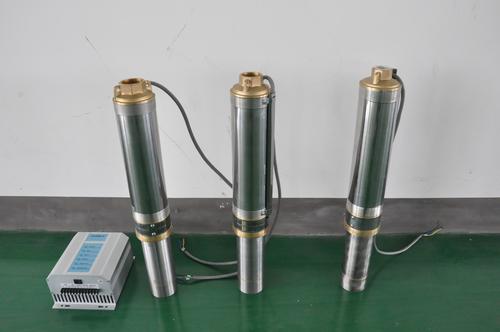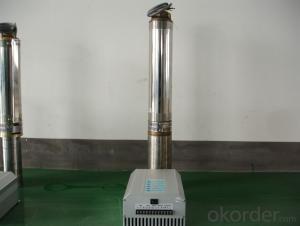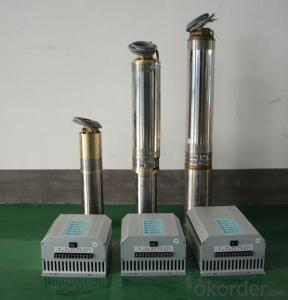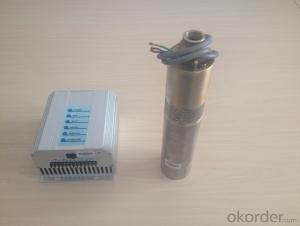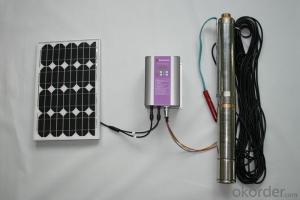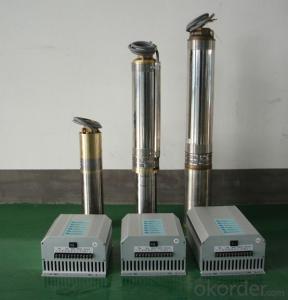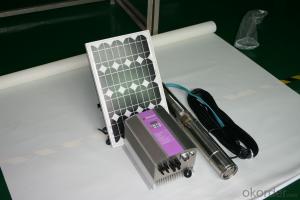Submersible Solar Pump Price - DC Solar Submersible Water Pump
- Loading Port:
- Shanghai
- Payment Terms:
- TT OR LC
- Min Order Qty:
- -
- Supply Capability:
- 300 set/month
OKorder Service Pledge
Quality Product, Order Online Tracking, Timely Delivery
OKorder Financial Service
Credit Rating, Credit Services, Credit Purchasing
You Might Also Like
how is the rotor made:
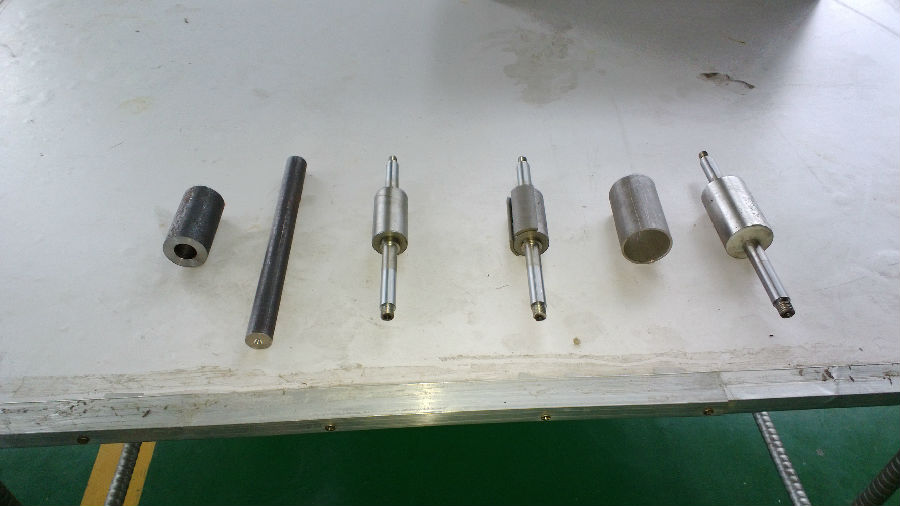
how is the motor made:
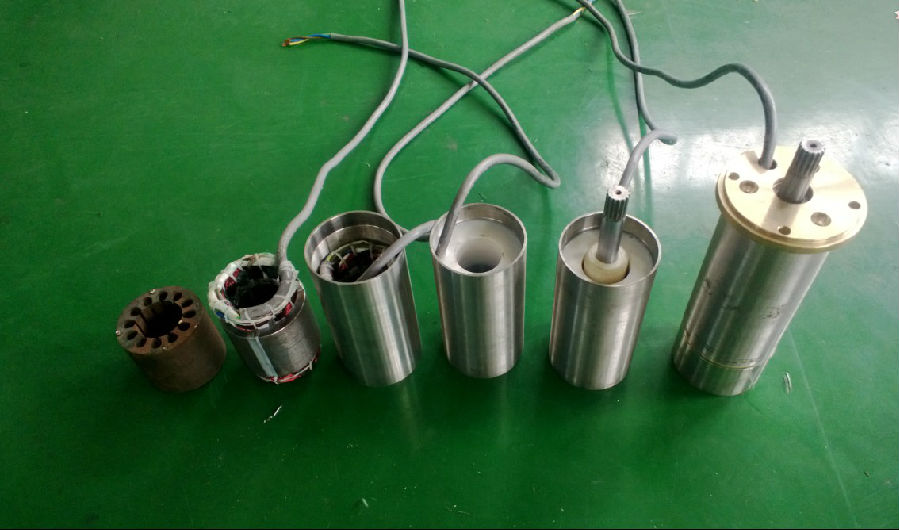
the pump :
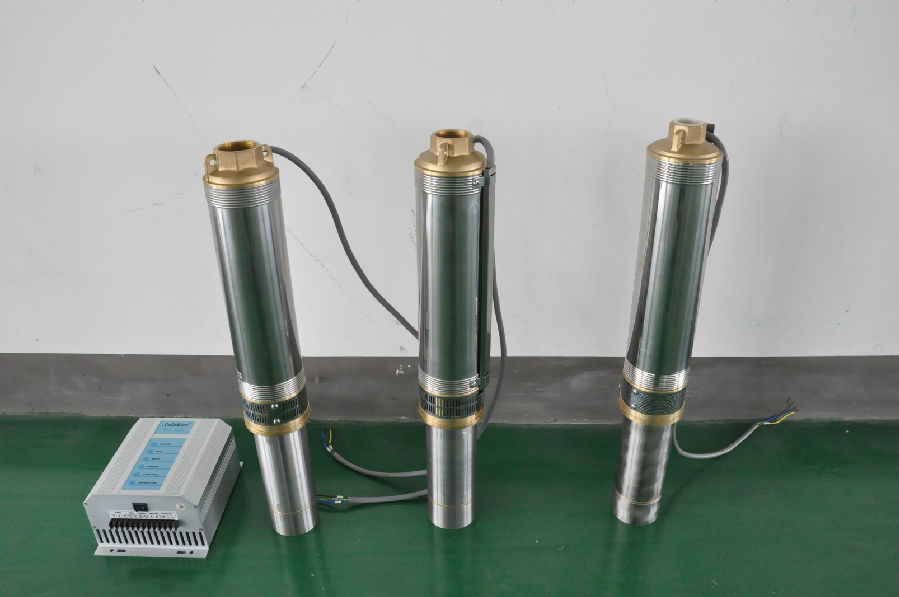
controller terminal connection:
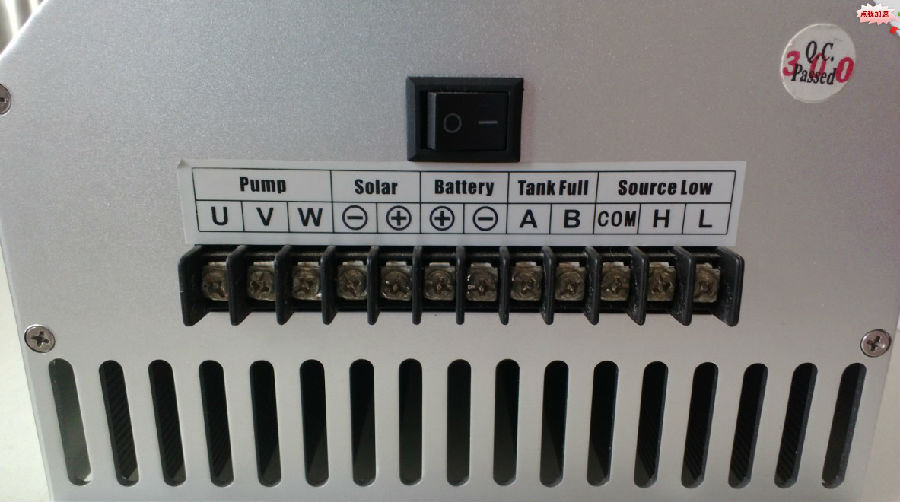
The permanent magnet:
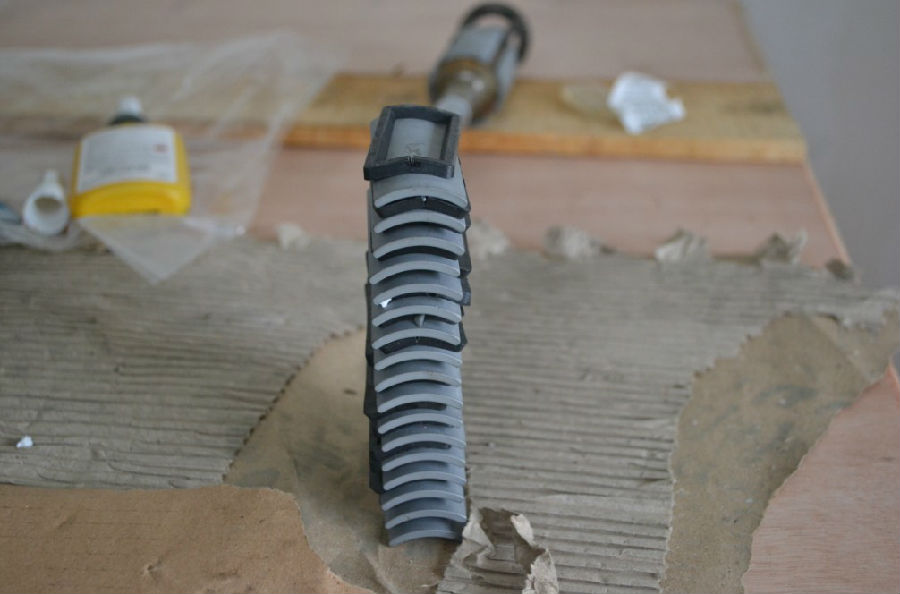
the impeller:
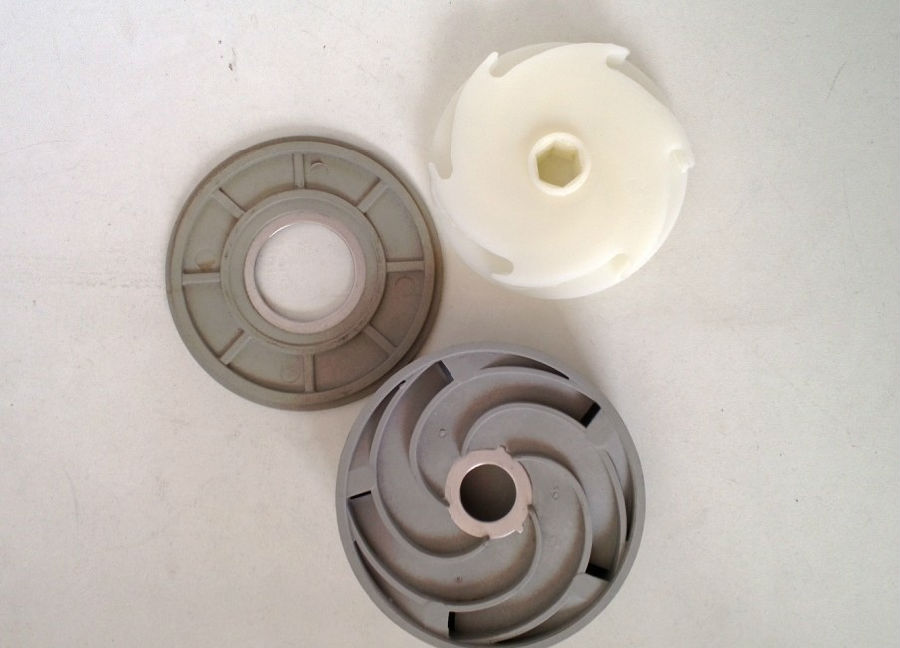
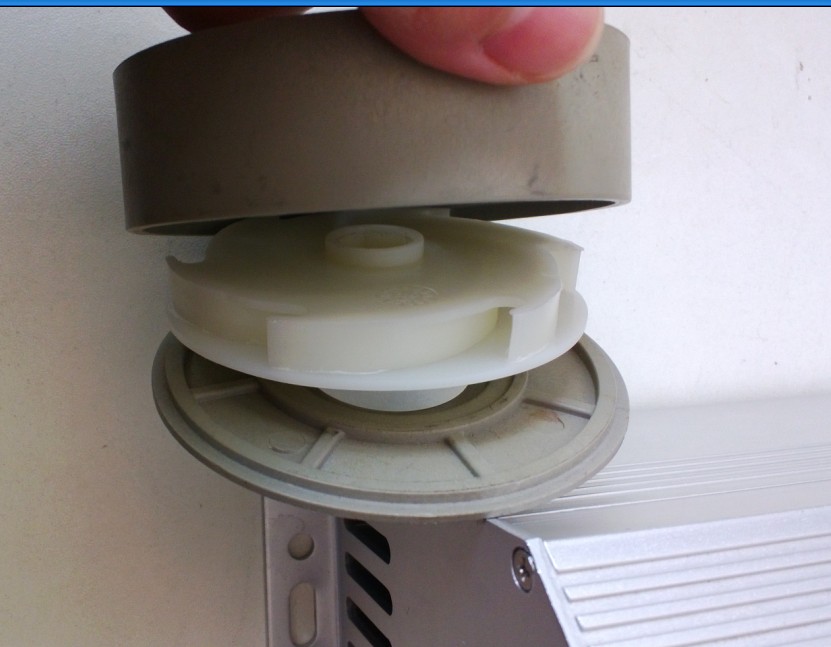
controller box:
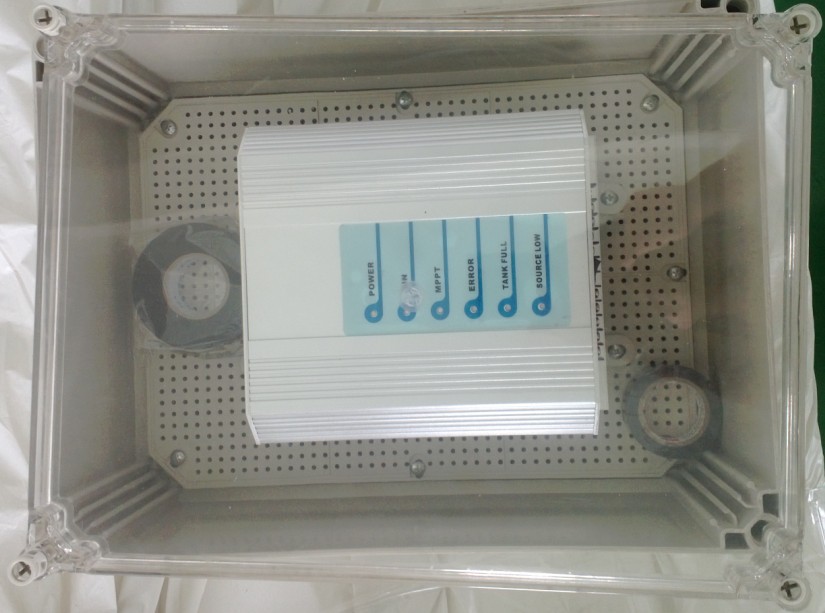
the senors:
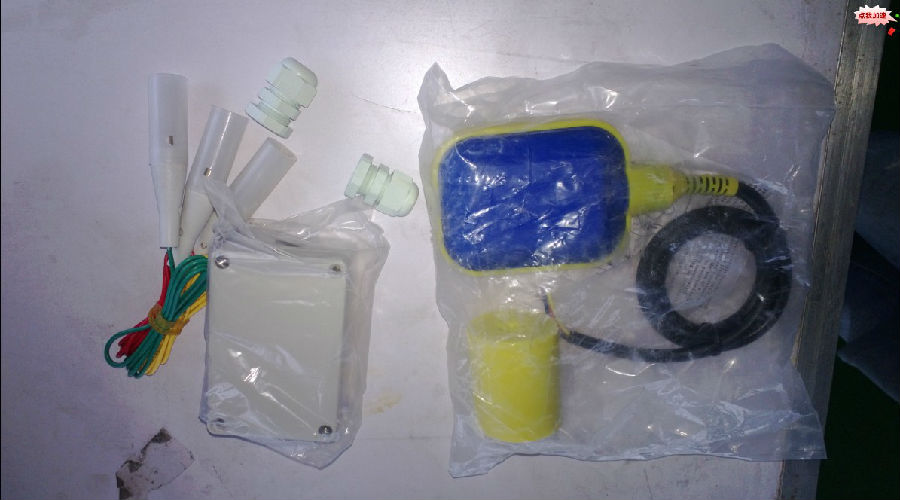
the test:
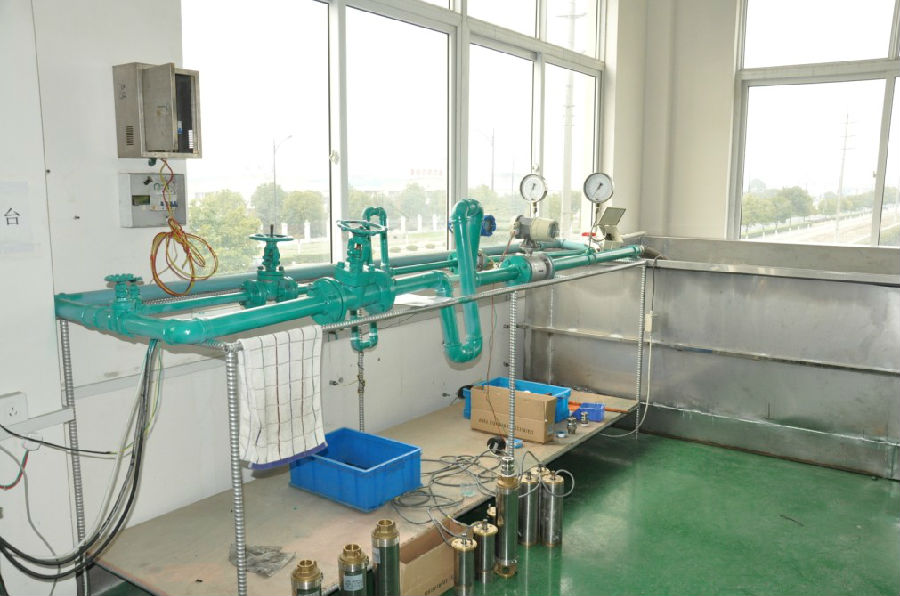
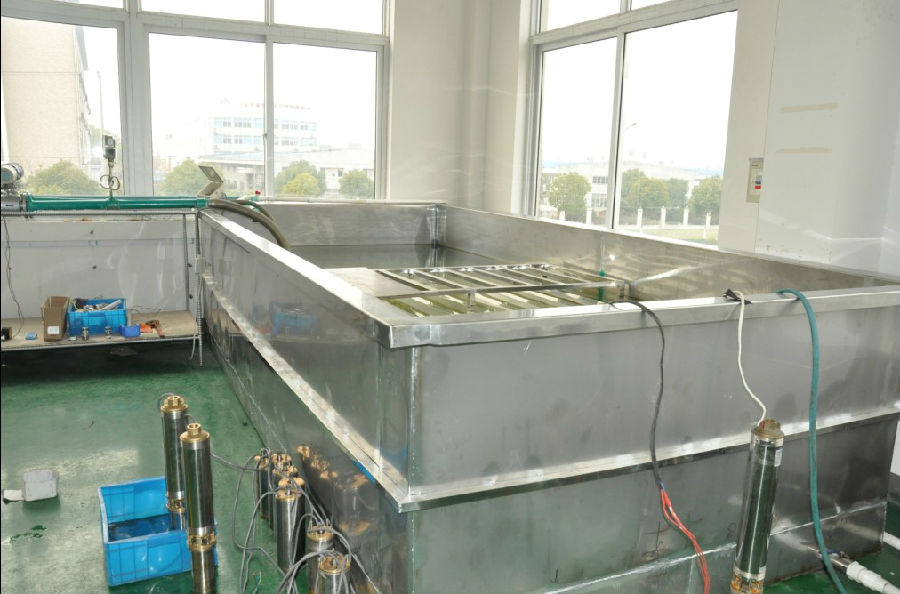
the application:
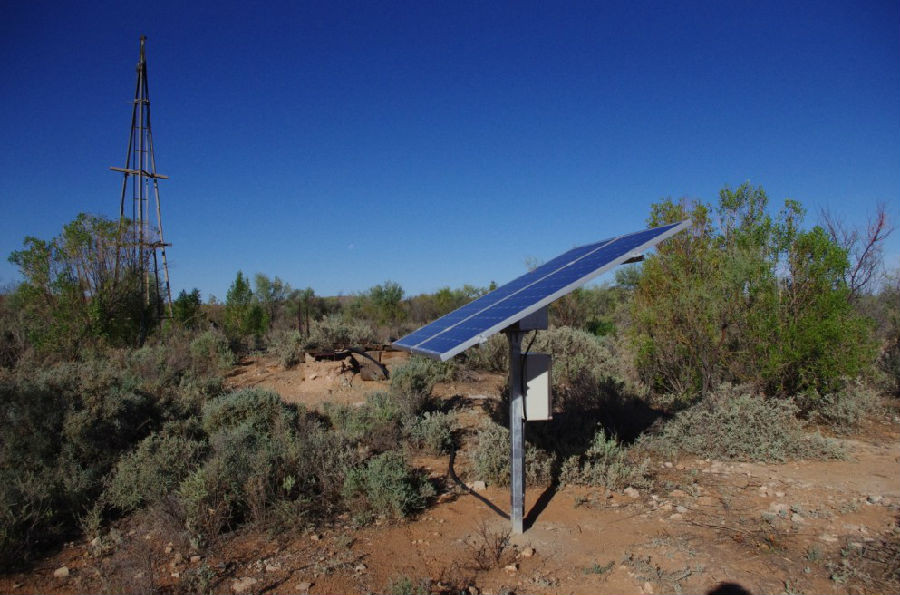
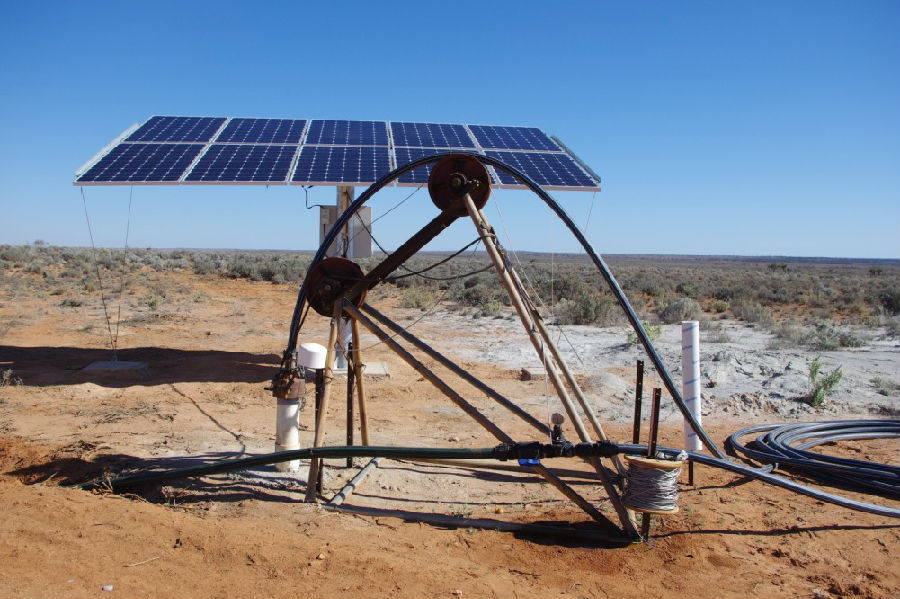
the package:
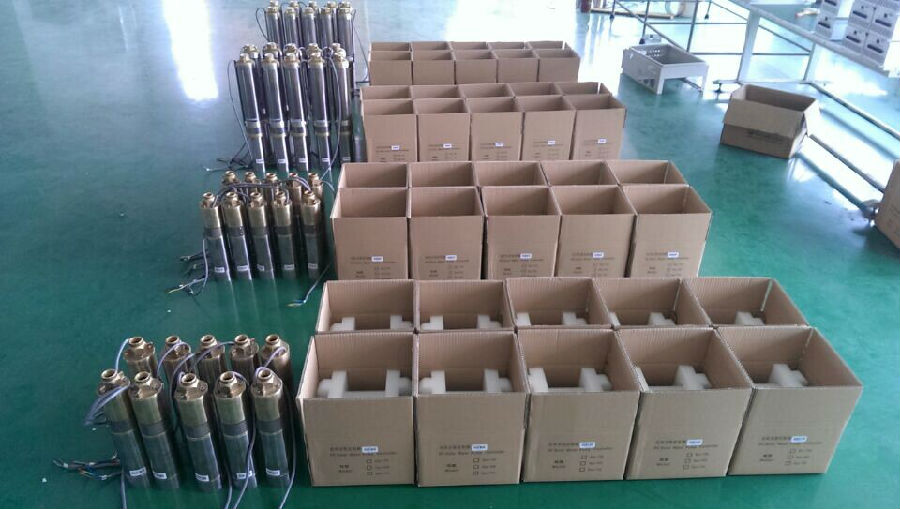
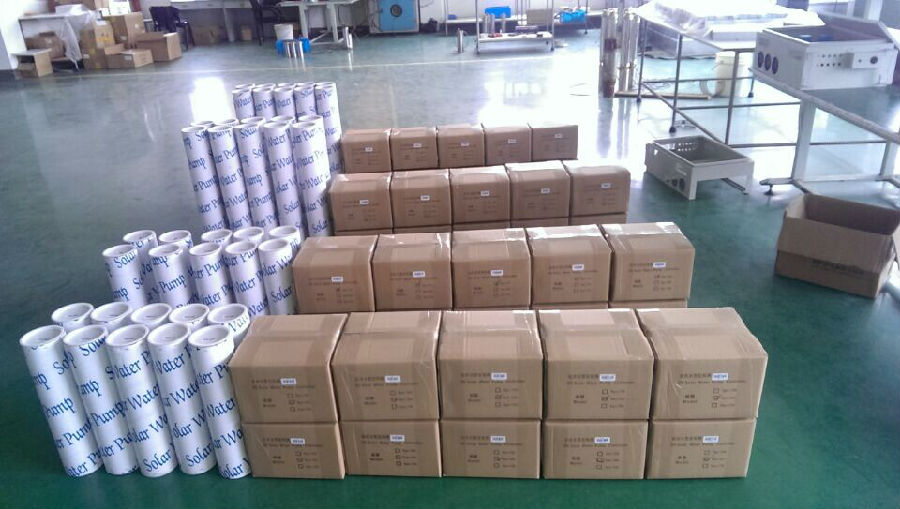
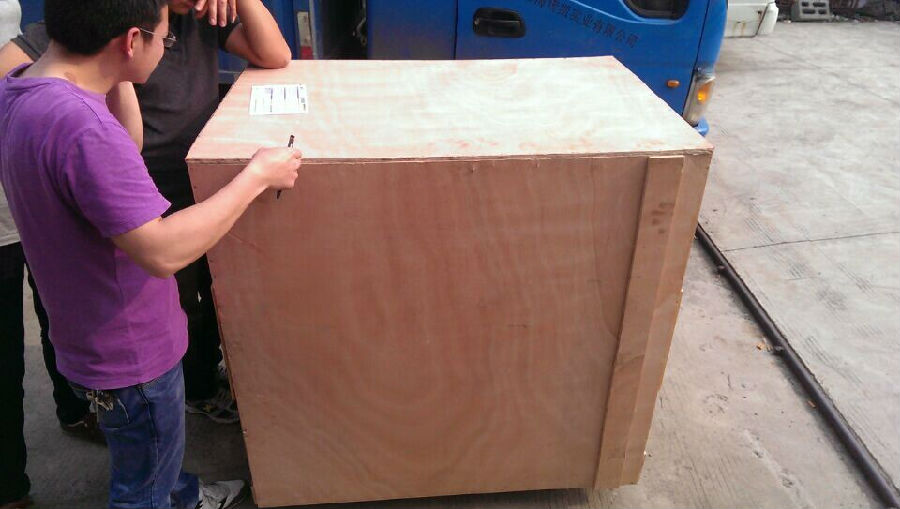
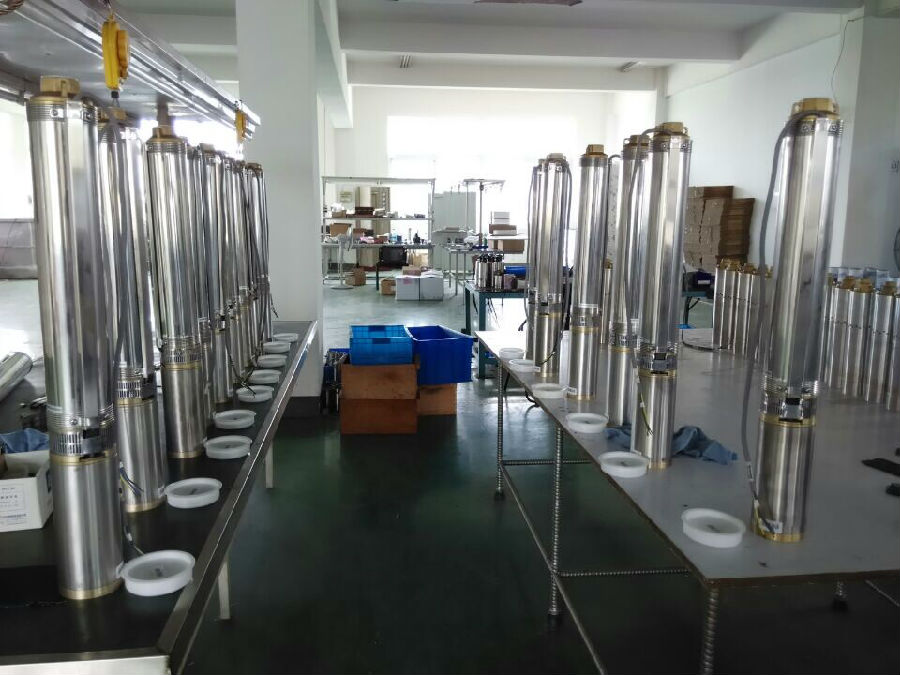
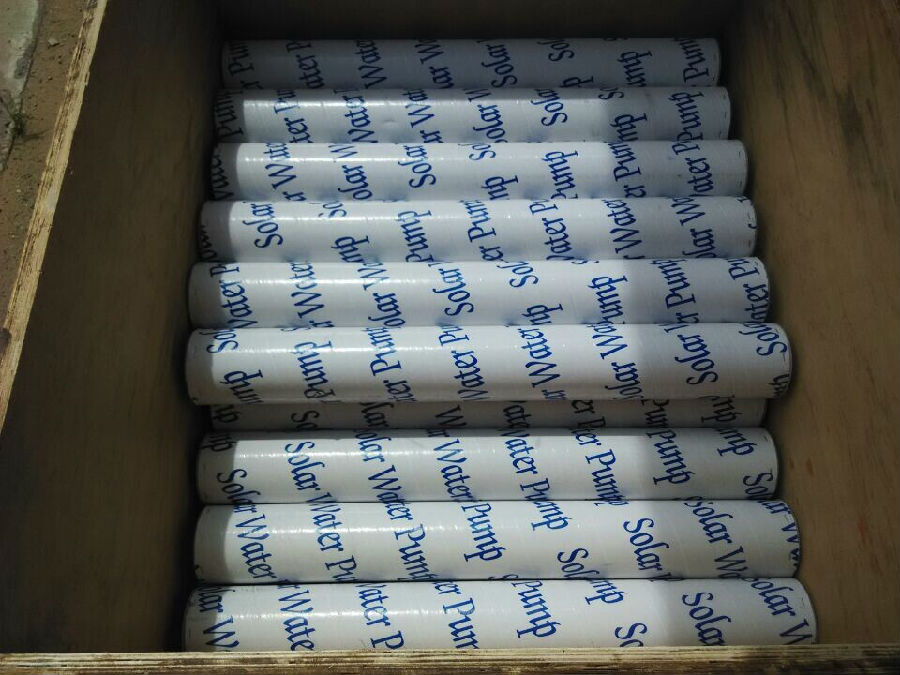
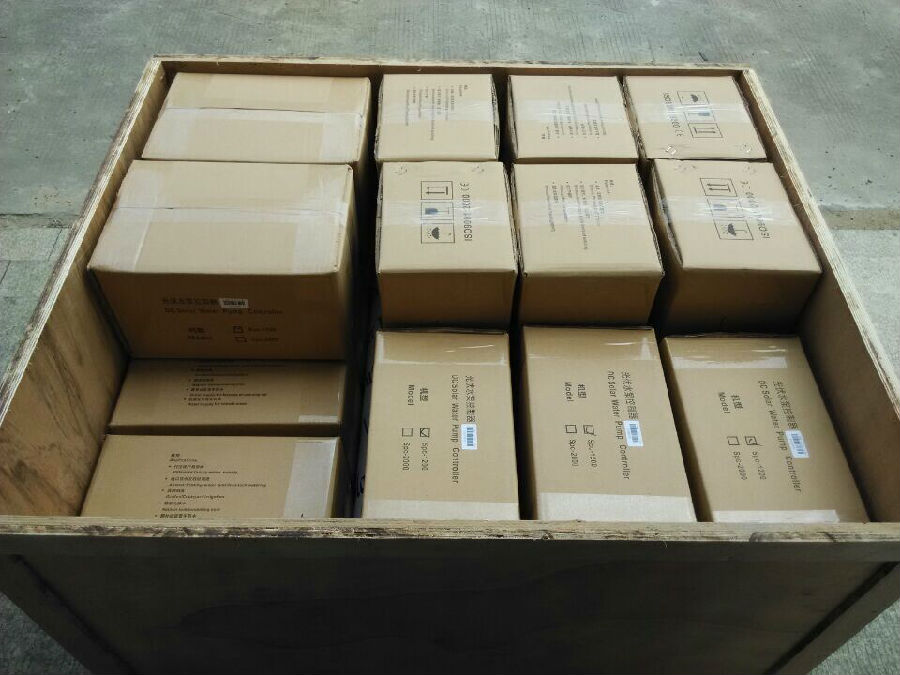
- Q: How does the quality of the solar panels affect the performance of a solar pump system?
- The quality of the solar panels directly impacts the performance of a solar pump system. High-quality panels with efficient conversion rates and durable construction can generate more electricity, leading to increased pumping capacity and better overall performance. Conversely, low-quality panels may have lower conversion rates, resulting in lower power output and reduced pump performance. Additionally, subpar panels may be prone to damage or degradation over time, leading to decreased efficiency and potential system failure. Therefore, investing in high-quality solar panels is crucial for maximizing the performance and longevity of a solar pump system.
- Q: Can a solar pump be used in areas with high salinity in water?
- Yes, a solar pump can be used in areas with high salinity in water. Solar pumps are designed to be versatile and can handle a wide range of water conditions, including high salinity. However, it is important to select the appropriate pump model and materials that are specifically designed to handle high salinity levels to ensure the longevity and efficiency of the pump.
- Q: Are there any limitations on the water pressure or flow rate for a solar pump?
- Yes, there are limitations on the water pressure and flow rate for a solar pump. The maximum water pressure and flow rate that a solar pump can achieve depend on various factors such as the power output of the solar panels, the efficiency of the pump, the size of the pumping system, and the elevation difference between the water source and the pump. Additionally, the type and design of the solar pump also play a role in determining its limitations. It is important to consider these factors when selecting a solar pump to ensure it meets your specific water pressure and flow rate requirements.
- Q: Can a solar pump be used for swimming pools or fountains?
- Yes, a solar pump can definitely be used for swimming pools or fountains. Solar pumps are an environmentally-friendly alternative to traditional electric pumps as they harness the power of the sun to circulate water. They are particularly suitable for swimming pools and fountains because they are designed to handle the relatively low flow rates and water volumes typically associated with these applications. Additionally, solar pumps have the advantage of being independent of the electrical grid, making them a cost-effective and sustainable choice for pool and fountain owners. They are easy to install, require minimal maintenance, and can provide consistent and reliable water circulation without the need for excessive energy consumption.
- Q: Can solar pumps be used for water supply in vineyards or orchards?
- Yes, solar pumps can be used for water supply in vineyards or orchards. Solar pumps are an efficient and sustainable option for irrigation, providing a reliable water source for these agricultural purposes while reducing dependence on traditional electricity sources. The use of solar pumps helps to conserve energy and decrease operational costs, making it a suitable solution for vineyards or orchards looking for environmentally friendly alternatives.
- Q: How do you maintain a solar pump?
- To maintain a solar pump, regular inspection and cleaning of the solar panels is essential to ensure optimal performance. Additionally, it is important to check the pump's connections, wires, and circuitry for any damage or loose connections. Monitoring the water levels and checking for any blockages in the intake or outlet pipes is also necessary. Lastly, keeping the area around the pump clean and free from debris will help to prevent any potential damage or malfunctions.
- Q: What is the maximum water depth that a solar pump can reach?
- The maximum water depth that a solar pump can reach varies depending on the specific model and its specifications. However, on average, solar pumps are capable of pumping water from depths of up to 100 to 200 feet (30 to 60 meters).
- Q: Can a solar pump be used in cold climates?
- Yes, a solar pump can be used in cold climates. Solar pumps are designed to work efficiently in a wide range of temperatures, including cold climates. However, it is important to consider the freezing point of water and take necessary precautions such as using antifreeze solutions or insulation to prevent the pump or pipes from freezing.
- Q: Can a solar pump be used for water supply in arid or desert regions?
- Yes, a solar pump can be used for water supply in arid or desert regions. Solar pumps are especially suitable for these regions due to their reliance on solar energy, which is abundant in such areas. Solar pumps work by converting sunlight into electricity, which powers the pump to extract water from underground sources or other water bodies. This makes them a sustainable and cost-effective solution for water supply in arid or desert regions where traditional electricity supply may be unreliable or non-existent. Additionally, solar pumps are often designed to be low-maintenance and durable, making them well-suited for the harsh conditions typically found in these regions. By harnessing the power of the sun, solar pumps can provide a reliable source of water to meet the needs of communities, agriculture, and other applications in arid or desert regions.
- Q: Are there any noise concerns with using a solar pump?
- No, solar pumps are generally quiet and do not produce any significant noise concerns.
Send your message to us
Submersible Solar Pump Price - DC Solar Submersible Water Pump
- Loading Port:
- Shanghai
- Payment Terms:
- TT OR LC
- Min Order Qty:
- -
- Supply Capability:
- 300 set/month
OKorder Service Pledge
Quality Product, Order Online Tracking, Timely Delivery
OKorder Financial Service
Credit Rating, Credit Services, Credit Purchasing
Similar products
Hot products
Hot Searches
Related keywords

